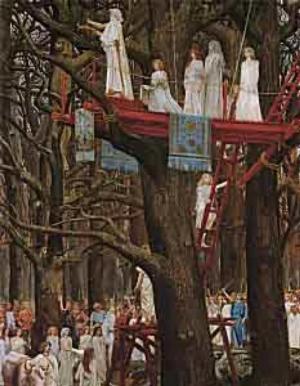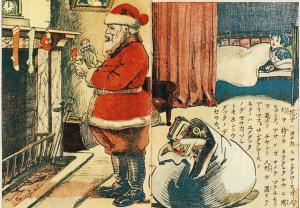The Circassian Chief: A Romance of Russia
Nonfiction, Religion & Spirituality, New Age, History, Fiction & Literature| Author: | William Henry Giles Kingston | ISBN: | 9781465593184 |
| Publisher: | Library of Alexandria | Publication: | March 8, 2015 |
| Imprint: | Language: | English |
| Author: | William Henry Giles Kingston |
| ISBN: | 9781465593184 |
| Publisher: | Library of Alexandria |
| Publication: | March 8, 2015 |
| Imprint: | |
| Language: | English |
Between the ancient and modern capitals of Russia, a fine broad road now affords an easy communication, although, but a few years ago, the traveller who would journey from one city to the other, was compelled to proceed at a slow pace, along a wild track, over rough stony ground, through swamps, under dark forests, and across bleak and unsheltered plains. The sun had already begun his downward course towards the more happy, and free lands of the far West, shedding forth his summer rays on the heads of two horsemen, who pursued their way in a southerly direction, along the yet unimproved part of the road, to which we have alluded. Their pace, as the nature of the ground over which they travelled required, was slow—their attention being chiefly occupied in guiding their steeds between the many deep ruts and cavities, which lay in their path. The tone of their voices, their noble bearing, and general appearance, bespoke them at a glance, to belong to a station far above the common rank of life. They were dressed alike, in a half military uniform; their arms consisting solely of pistols, and heavy riding whips the latter even no despicable weapon when wielded by a strong arm. The travellers might have been taken for brothers, but that the dark flashing eye, black hair, clear olive-complexion, and regular Grecian features of the one, offered too great a contrast to the laughing blue eye, light complexion and hair of the other, whose features, though inferior to those of his companion, were not deficient in manly beauty. There appeared to be scarcely any difference in their ages, both having emerged from boyhood, into that joyous time of life, when the man has completely shaken off what he then considers the irksome trammels of his childish days; happily, unconscious how soon in their stead, advancing years may too probably bring around him the many cares, and disappointments that flesh is doomed to bear, from manhood to the grave.
Between the ancient and modern capitals of Russia, a fine broad road now affords an easy communication, although, but a few years ago, the traveller who would journey from one city to the other, was compelled to proceed at a slow pace, along a wild track, over rough stony ground, through swamps, under dark forests, and across bleak and unsheltered plains. The sun had already begun his downward course towards the more happy, and free lands of the far West, shedding forth his summer rays on the heads of two horsemen, who pursued their way in a southerly direction, along the yet unimproved part of the road, to which we have alluded. Their pace, as the nature of the ground over which they travelled required, was slow—their attention being chiefly occupied in guiding their steeds between the many deep ruts and cavities, which lay in their path. The tone of their voices, their noble bearing, and general appearance, bespoke them at a glance, to belong to a station far above the common rank of life. They were dressed alike, in a half military uniform; their arms consisting solely of pistols, and heavy riding whips the latter even no despicable weapon when wielded by a strong arm. The travellers might have been taken for brothers, but that the dark flashing eye, black hair, clear olive-complexion, and regular Grecian features of the one, offered too great a contrast to the laughing blue eye, light complexion and hair of the other, whose features, though inferior to those of his companion, were not deficient in manly beauty. There appeared to be scarcely any difference in their ages, both having emerged from boyhood, into that joyous time of life, when the man has completely shaken off what he then considers the irksome trammels of his childish days; happily, unconscious how soon in their stead, advancing years may too probably bring around him the many cares, and disappointments that flesh is doomed to bear, from manhood to the grave.















